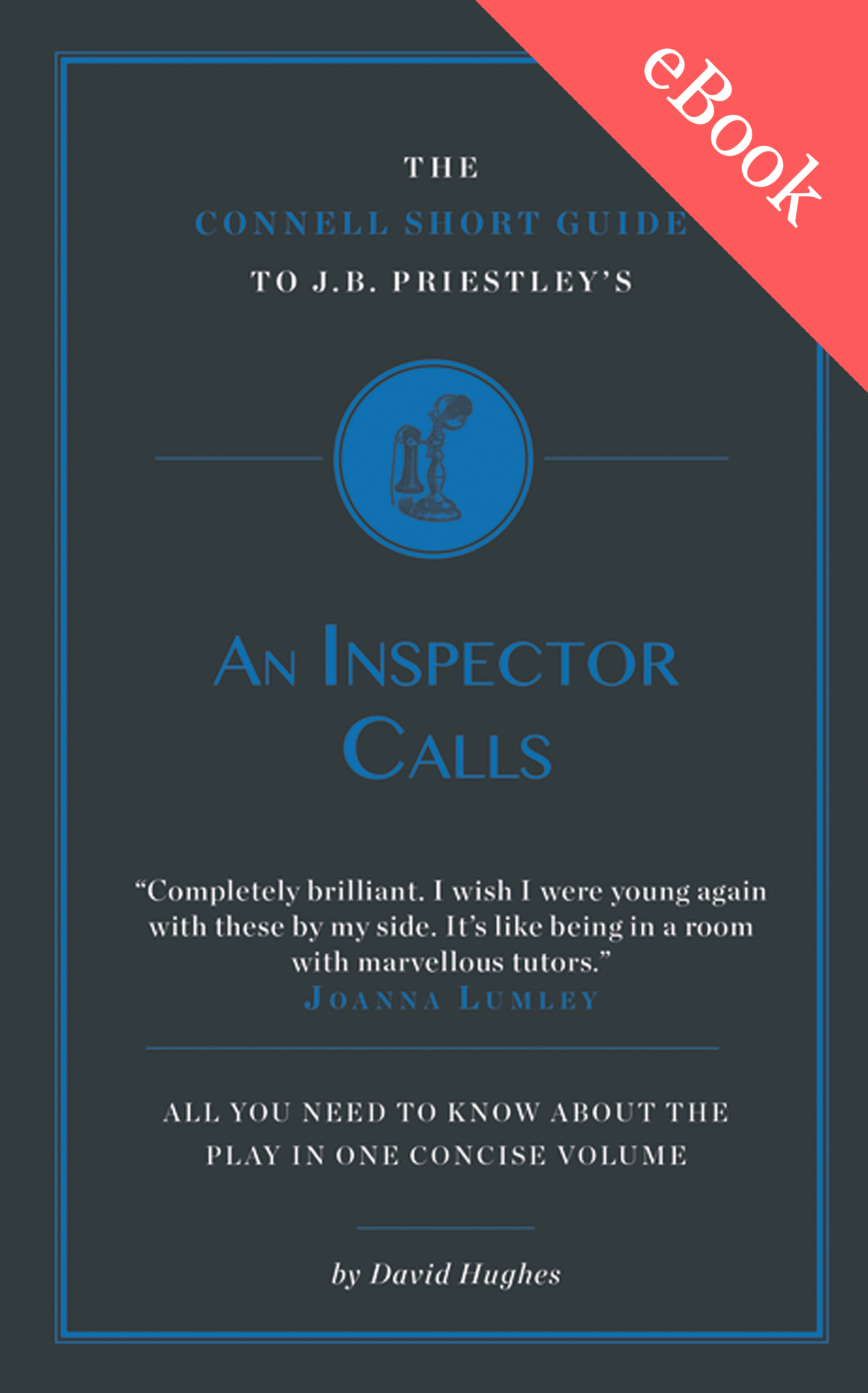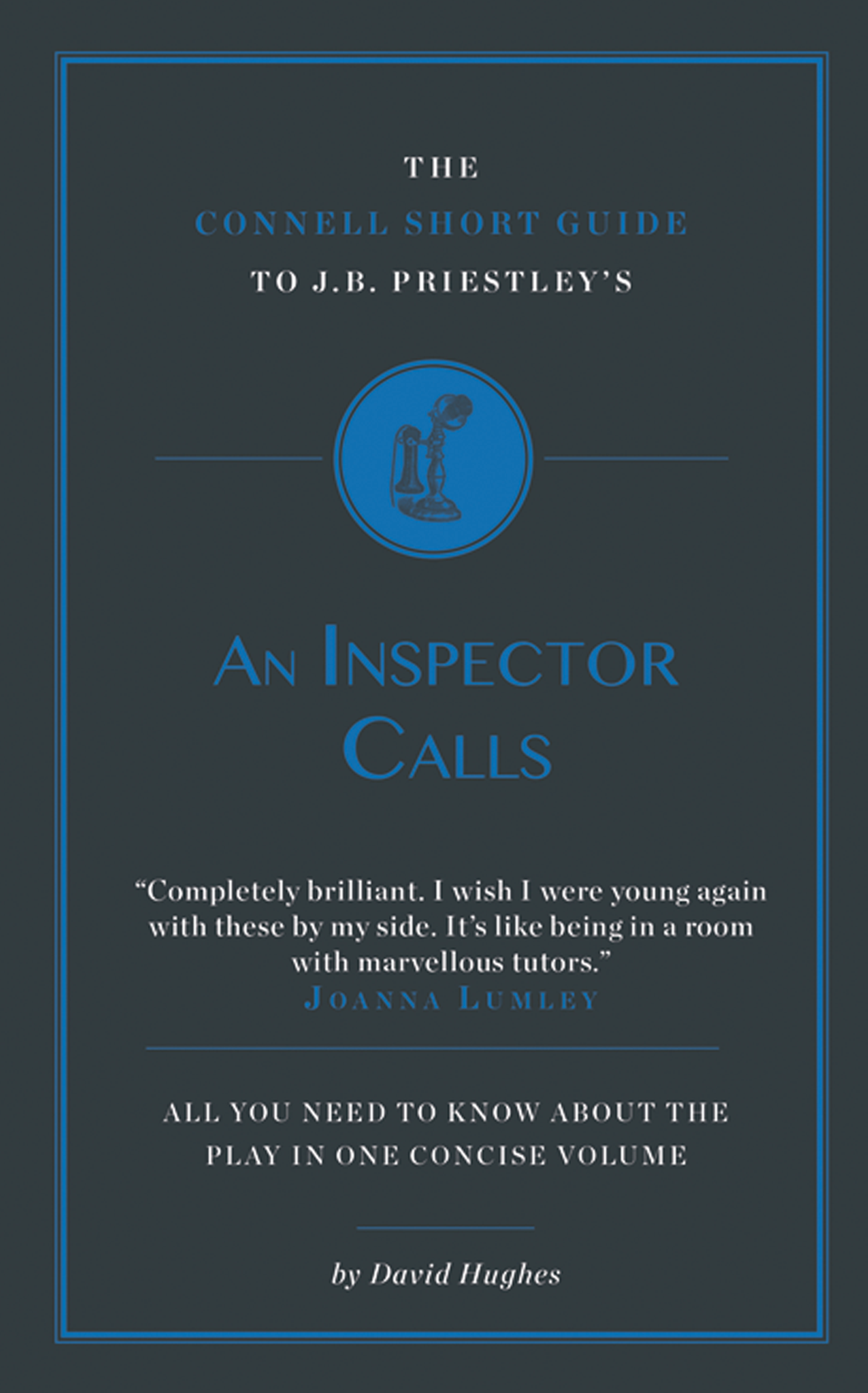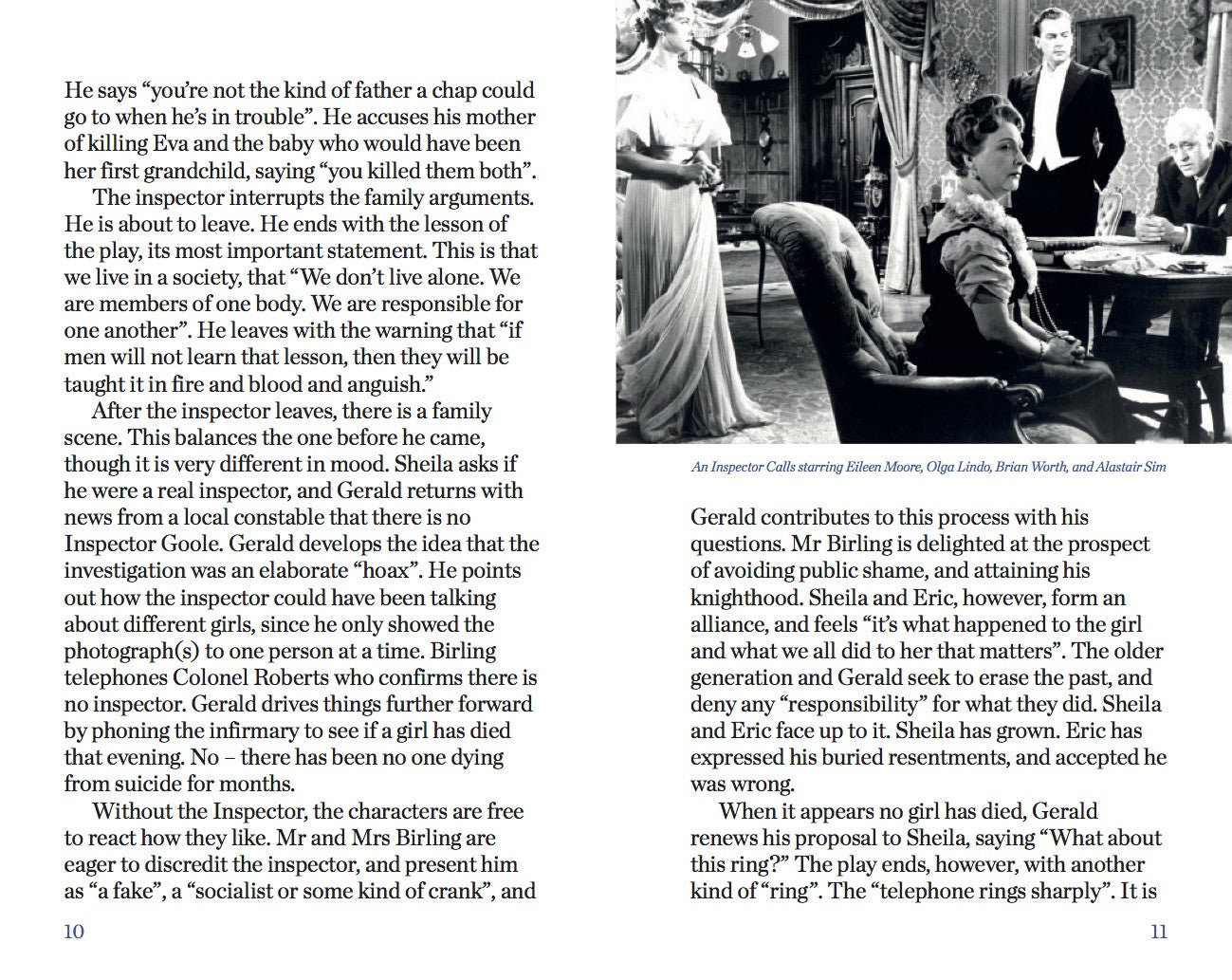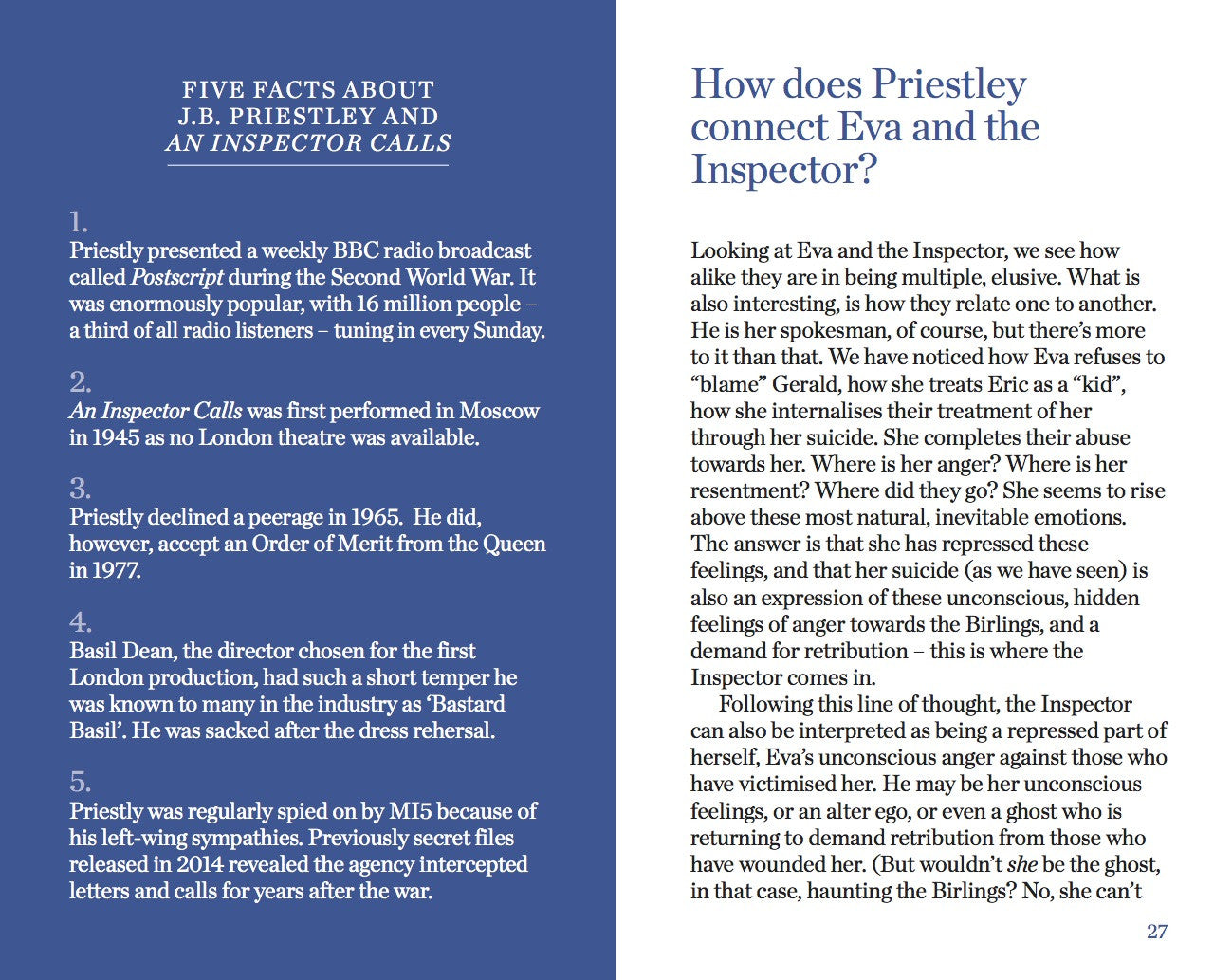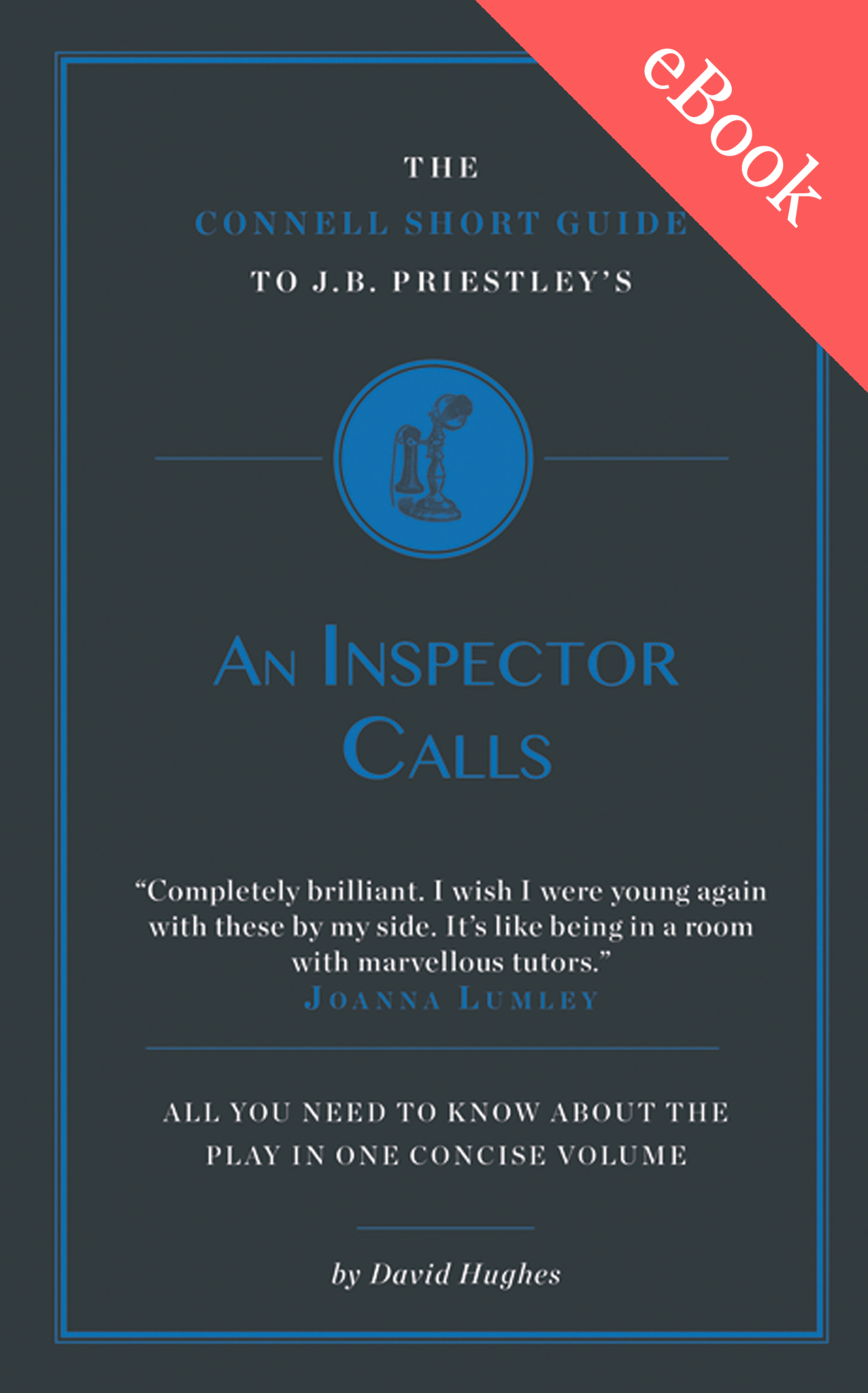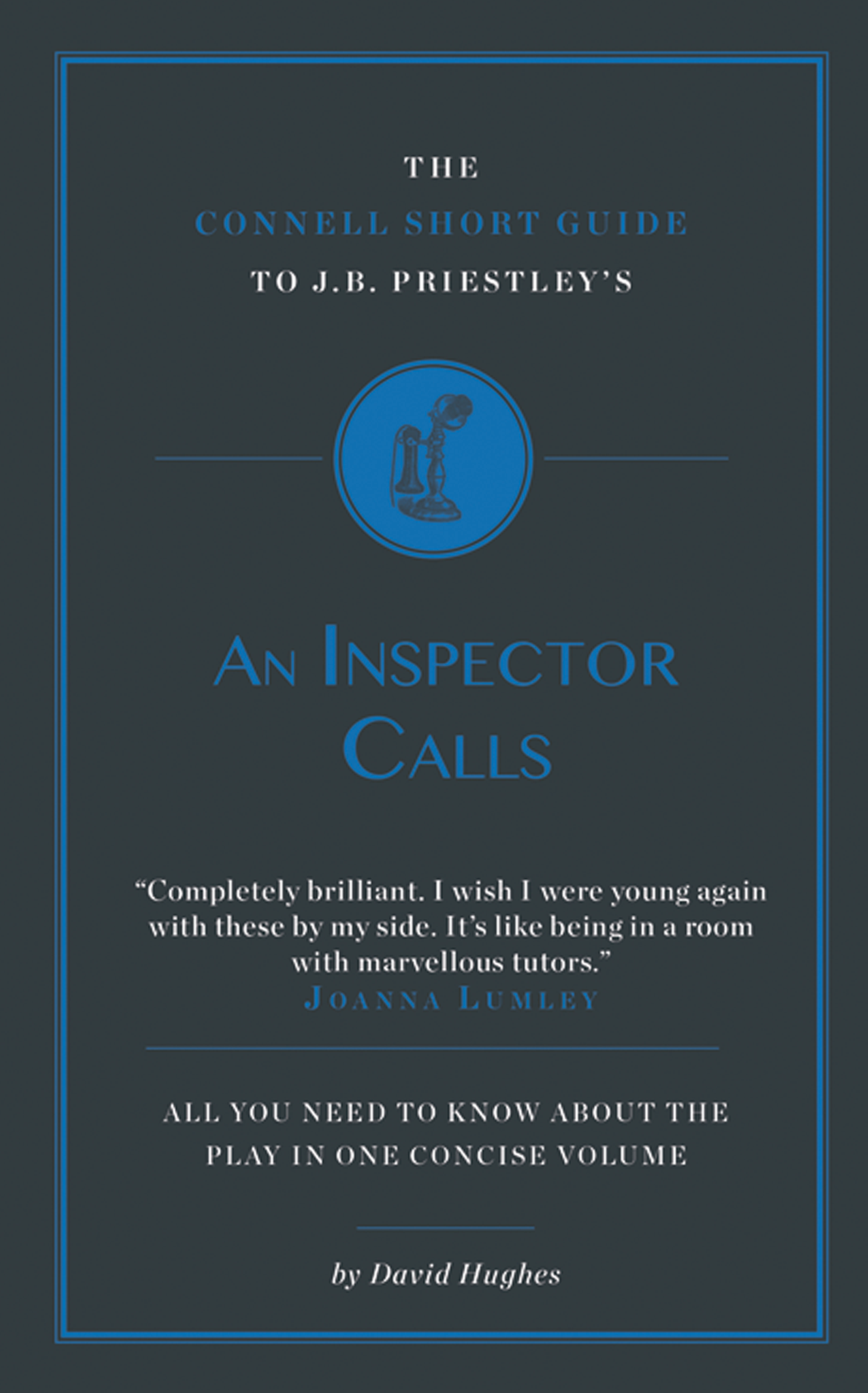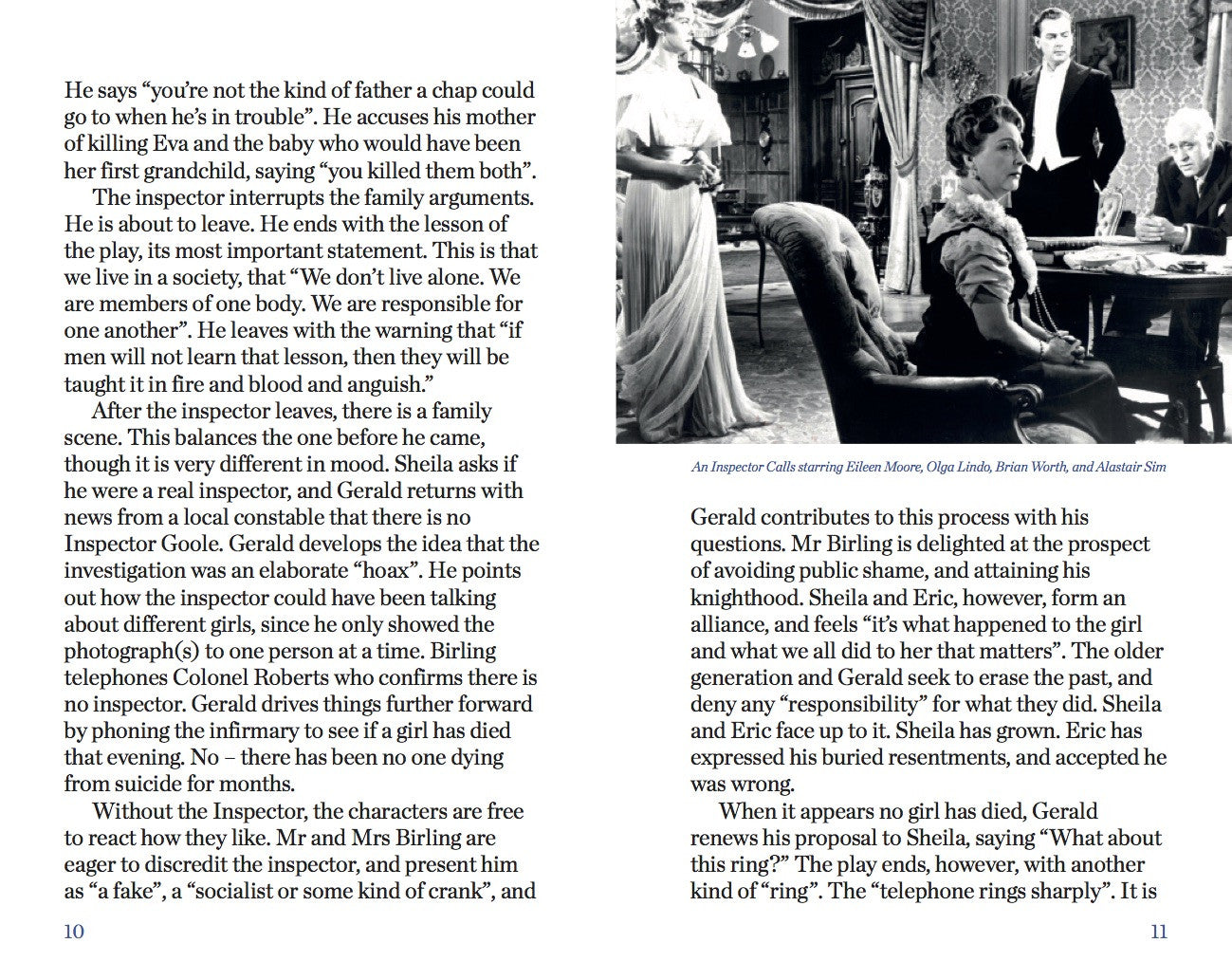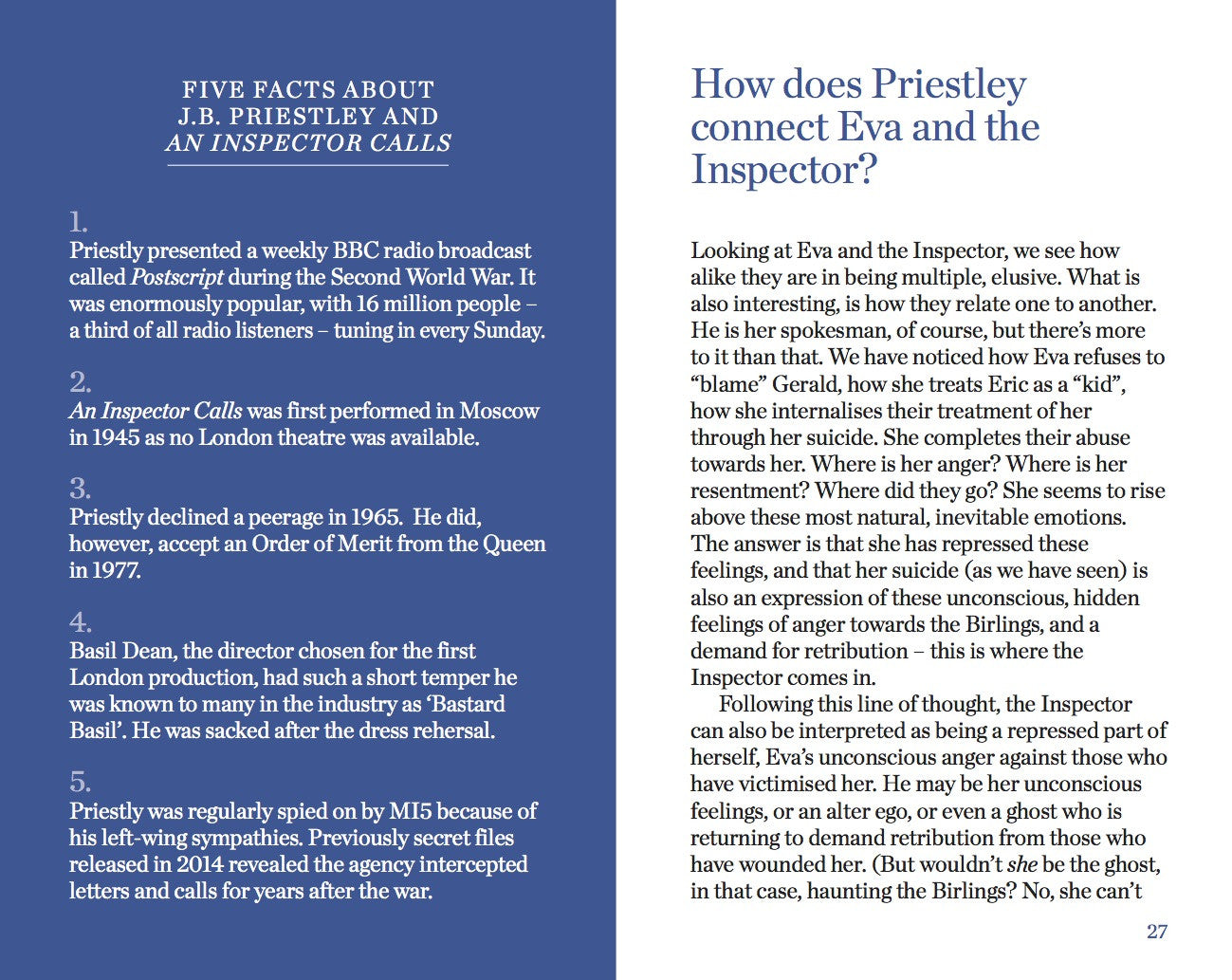1
/
of
4
J.B. Priestley's An Inspector Calls Short Study Guide
J.B. Priestley's An Inspector Calls Short Study Guide
Regular price
£4.99 GBP
Regular price
Sale price
£4.99 GBP
Unit price
/
per
Couldn't load pickup availability
On one level, An Inspector Calls is a whodunit. But much more importantly it is a morality play – one in which its author sets out to expose what he sees as the arrogance and indifference of Britain’s ruling class. Though written in 1944, it continues to fascinate critics and audiences alike, with one contemporary theatre director describing it as a “a call to arms”. So just how good a play is it, asks David Hughes in this short guide, and just how relevant is it to the world we live in today?
.
This short study guide tells you all you need to know about J.B. Priestley's An Inspector Calls. Connell Guides are advanced guide books that offer sophisticated analysis and broad critical perspectives for higher-level GCSE and A Level English Literature students. Written by leading academics, Connell Guides are clear, concise and beautifully designed to help students understand, and enjoy, great works of literature. They are perfect for coursework, revision and exam preparation. Connell Guides are also great reads themselves scholarly, yet approachable and entertaining.
ISBN- paperback: 978-1-911187-09-7
Contents
Introduction
What happens in An Inspector Calls?
Act One
Act Two
Act Three
Why is social class so important in An Inspector Calls?
What is the significance of Eva Smith?
What should we make of the Inspector?
How does Priestley connect Eva and the Inspector?
What kind of play is An Inspector Calls?
What makes it a success on stage?
NOTES
Five facts about J.B. Priestley and An Inspector Calls
An Inspector Calls: some critical views
The play in its social contexts
